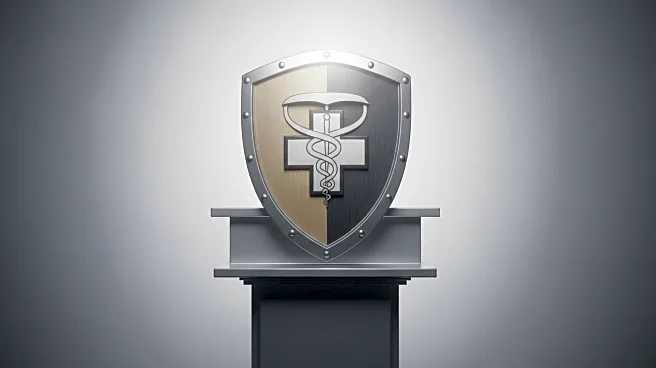What's Happening?
Nine former leaders of the Centers for Disease Control and Prevention (CDC) have publicly criticized Health Secretary Robert F. Kennedy Jr. for his policies, which they claim are endangering public health. In an open letter published in the New York Times, these former officials expressed concern over Kennedy's actions, including restricting vaccine access and cutting funding for research. They highlighted the firing of thousands of healthcare workers and the removal of Dr. Susan Monarez as CDC director, which led to several resignations in protest. Kennedy, who has been vocal about his skepticism towards vaccines, has also ended U.S. support for global vaccine programs, a move that has alarmed health officials. The former CDC leaders argue that these policies could increase the risk of serious diseases among children and potentially lead to another pandemic.
Why It's Important?
The criticism from former CDC leaders underscores significant concerns about the direction of U.S. health policy under RFK Jr's leadership. The reduction in vaccine access and funding for infectious disease research could have far-reaching implications for public health, potentially increasing vulnerability to outbreaks. The firing of healthcare workers and the disruption at the CDC may weaken the country's ability to respond to health crises. These developments could affect millions of Americans, particularly those reliant on Medicare, as Kennedy's policies might lead to loss of health insurance coverage. The situation highlights the tension between political leadership and scientific expertise in shaping health policy, with potential consequences for public trust in health institutions.
What's Next?
The ongoing criticism of RFK Jr's policies may lead to increased scrutiny from political leaders and public health advocates. There could be calls for legislative action to counteract the changes implemented by Kennedy, especially concerning vaccine access and healthcare worker employment. The public and political pressure might prompt a reevaluation of current health policies, potentially leading to policy reversals or modifications. Stakeholders, including healthcare organizations and civil society groups, are likely to engage in advocacy efforts to protect public health interests and ensure adequate funding for research and disease prevention.
Beyond the Headlines
The situation raises ethical questions about the balance between individual beliefs and public health responsibilities. RFK Jr's stance on vaccines reflects broader debates about personal freedom versus collective safety, a theme that has been prominent in recent health policy discussions. The impact on public trust in health institutions could have long-term effects, influencing how future health crises are managed and perceived by the public. The controversy also highlights the role of political influence in scientific decision-making, a dynamic that may shape the future of health policy in the U.S.









